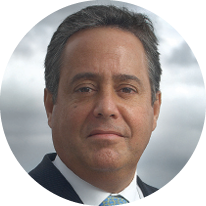António Cunha Vaz, Chairman at CV&A
Everything is happening. At a dizzying speed. Globally. Unexpectedly. Portugal is halfway through its mandate in the Presidency of the Council of the European Union. António Guterres, Secretary-General of the United Nations, announced his intention to run for another term. Within six months, Mrs Merkel will be leaving government in Germany. In Israel, Benjamin Netanyahu won the elections for the fourth time; in Myanmar the military coup engages in massacres as the world stands by passively; in Mozambique the Government doing everything it can to control the attacks of Islamic terrorists and life it not easy for populations; in Brazil the pandemic is reaching unprecedented proportions; Australia is confronted with floods beyond belief; there are more and more conflict areas in Africa; and, I must confess, indecision or excessive decision as regards the pandemic have put Portugal under nervous breakdown. While the reality, from the medical perspective, seems to be improving, as regards the economy things are more serious. And don’t even mention the European bazooka or moratoriums, as the latter are like curing a serious disease with Aspirin and as regards the first it was bound to happen in the first semester and, to be honest, I believe it will see the light of day in October. Let us see who will be able to survive.
And while the bazooka does come late, the moratoriums would only serve their purpose if companies were healthy before the pandemic. The vast majority of them were not, they have been able to survive only because there were assorted measures in place and when the time comes to start paying capital they will experience major difficulties as regards their survival. Is the Portuguese business world over? No. It was never there. Portuguese capitalists have no capital, they have always been subsidised by the banks and the market is too small to ensure the survival of many companies. Let us hope the banking sector will, let us stop feeling happy when the businesses of our competitors don’t go that well and let us hope the number of companies to be established will be higher and of better in quality than the ones that will perish.
Internationally, the Paris Berlin axis should thinks about the rest of the Europe in this Union, Portugal should do its best to stop people from thinking that the capital of Iberia – as if Iberia existed – is Madrid; growing tension between China, Russia and the USA should be reduced; Latin America should find a path of development; and let us hope Brazil, in particular and due to its size, finds its way again. As regards other parts of the world the role of India, the largest democracy in the world and an industrial power, and the role of some Asian and Middle Eastern countries, with or without oil, ought to be seen as essential, economically but also climatically. Africa has a special role to play in the future of the world. Africa cannot be left behind forever and populations repeatedly left to their own device. The responsibility for ensuring Africa’s development rests with Africans and their governments. But the so-called developed countries cannot be accomplices, in the public and private sectors, of the waste of funds that are never there for the benefit of populations.
I would like to end with a note on Portugal. When the State signs agreements it must honour them, whether they were signed with national or foreign entities. Otherwise, in the case of the latter, it may risk the appeal of investing in this country right by the sea being lost. If those in power do not have the competence to negotiate agreements, they should be replaced. Held accountable. The Portuguese State cannot attract investment when it needs and try to avoid the duties undertaken with those who invest in Portugal when he doesn’t need them.







